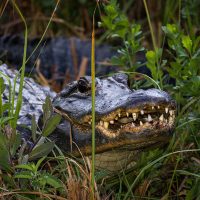Springtime Is Peak Season For Alligator Attacks In South Carolina

It isn’t just your imagination that, as a lifelong resident of South Carolina, you are hearing more in the news about alligator attacks and close calls than you used to when you were younger. There were several reasons for this. One is that the American alligator population has rebounded since the United States Fish and Wildlife Service declared alligators an endangered species in 1973, perhaps saving them from being hunted to extinction. Another reason is that there are simply more news stories these days than there were in the pre-Internet era. Gator sightings used to be an easy fix for a slow news day in the states that form the American alligator’s range, but now they are a quick fix for a slow news millisecond. Perhaps the biggest reason, though, is that humans have moved closer to gators. Housing developments and resorts built over the past few decades have moved deeper into the habitat of alligators, increasing the likelihood of close encounters. Despite this, property owners have a legal responsibility to keep visitors to their property safe from preventable accidents, including alligator attacks. If you got injured by an alligator on private property or at a public park in South Carolina, contact a Columbia premises liability lawyer.
Why Do Gators Pose a Bigger Danger in the Spring?
Being reptiles, alligators are cold-blooded, which means that their body temperature changes according to their surroundings. In the winter, they are less active, but in the warmer months, they spend more time sunbathing on land or swimming from one place to another. Breeding season for alligators lasts from April until June, which makes them likely to roam in search of mates and to fight over territory. During breeding season, gators have no fear of crossing an interstate highway if a potential mate is on the other side.
Alligators are not naturally aggressive toward humans; they are much less likely to attack humans than the Nile crocodile, found in Africa, and the saltwater crocodile, found in Australia. Most alligator attacks on humans occur when people swim in rivers and lakes inhabited by alligators. Other attacks occur when people walk near the water’s edge on waterfront property or next to canals. Gators are much more likely to attack dogs walking near the edge of a canal or lake than they are to attack humans.
Premises liability laws protect people injured in accidents, including animal attacks, on public or private property. You might be entitled to damages after an alligator attack if you can prove that the property owner should reasonably have known that alligators and humans could come into close contact on the property and that the property owner could have prevented this contact.
Let Us Help You Today
The personal injury lawyers at the Stanley Law Group can help you if you suffered serious injuries in an alligator attack in a residential neighborhood, public park, or place of business. Contact The Stanley Law Group in Columbia, South Carolina or call (803)799-4700 for a free initial consultation.
Sources:
abcnews4.com/news/local/wildlife-officials-give-tips-on-how-to-be-alligator-safe-as-temperatures-warm-south-carolina-department-of-natural-resources-wciv-scdnr
wpde.com/news/local/charleston-police-help-relocate-alligator-from-roadway-in-west-ashley-charleston-towne-landing-wciv-cfd-fire-station-12
